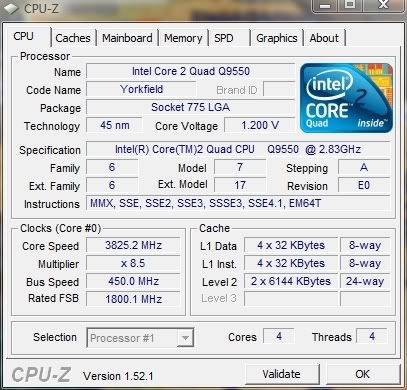NathanP2007
[H]ard|Gawd
- Joined
- Dec 17, 2007
- Messages
- 1,697
So i havent ever touched my Q9550 in terms of overclocking or underclocking or ANYthing. It is bone stock. I do have "some" experience with overclocking as the PC in my sig use to have a E5200 in it and i OC'ed that to 3.5GHz. I read though about people with my CPU or the Q9650, overclocking theirs to like 4.5GHz....and trying to compare to a i7.
So i was just curious, what type of performance increase (in day to day use, and in gaming) would i see if i overclocked my Q9550 from its stock 2.83GHz to something like 3.5GHz or even 4.0? I know my Mobo is great at OC'ing and i have a hyper 212+ so cooling wouldnt be a issue.
So i was just curious, what type of performance increase (in day to day use, and in gaming) would i see if i overclocked my Q9550 from its stock 2.83GHz to something like 3.5GHz or even 4.0? I know my Mobo is great at OC'ing and i have a hyper 212+ so cooling wouldnt be a issue.
![[H]ard|Forum](/styles/hardforum/xenforo/logo_dark.png)
